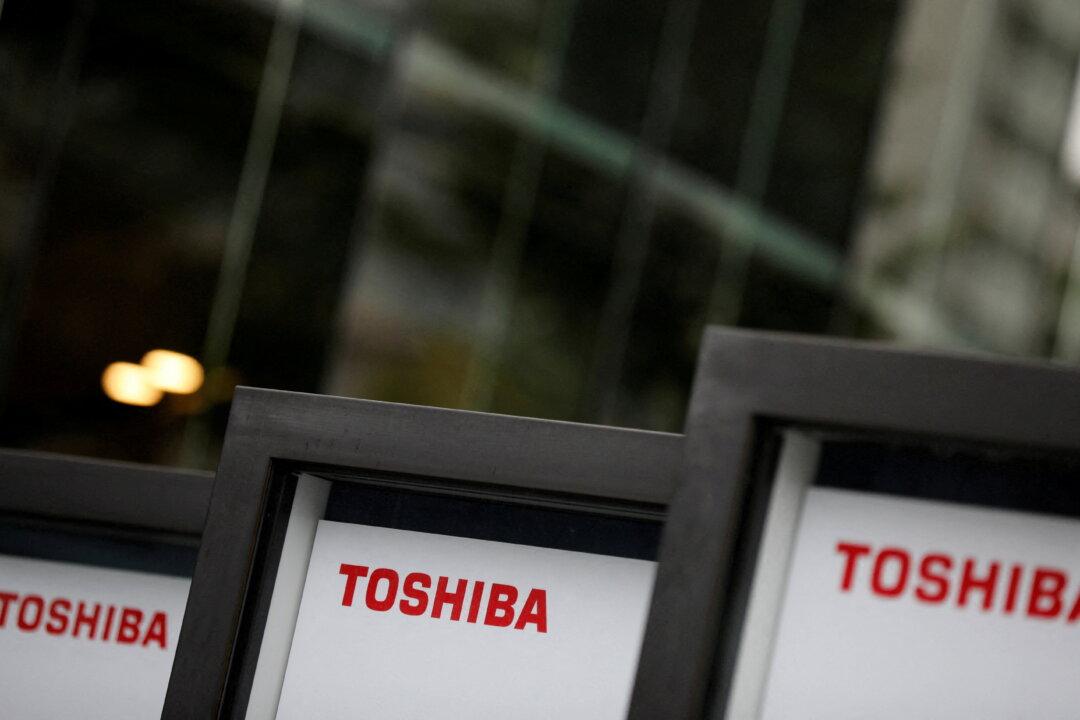Toshiba Corp. is splitting into two standalone companies, the electronics maker stated on Feb. 7, after previously announcing its intention to separate into three companies.
The two independent companies, both of which will be publicly traded, will be made up of Toshiba Infrastructure Service, which covers energy, transportation, batteries, and other areas; in addition to Toshiba’s ownership stake in Kioxia Holdings Corp., and Device Co., which covers digital devices, semiconductors, and storage.




